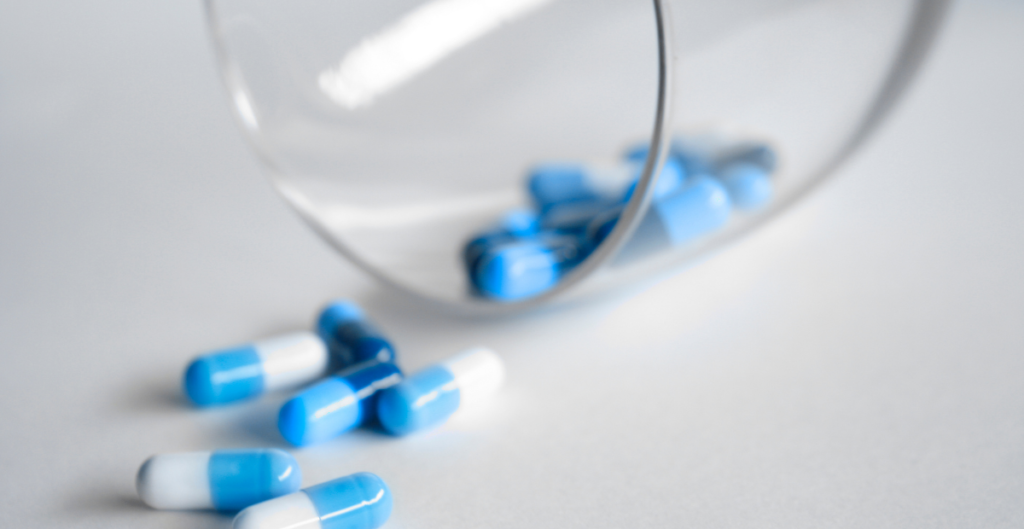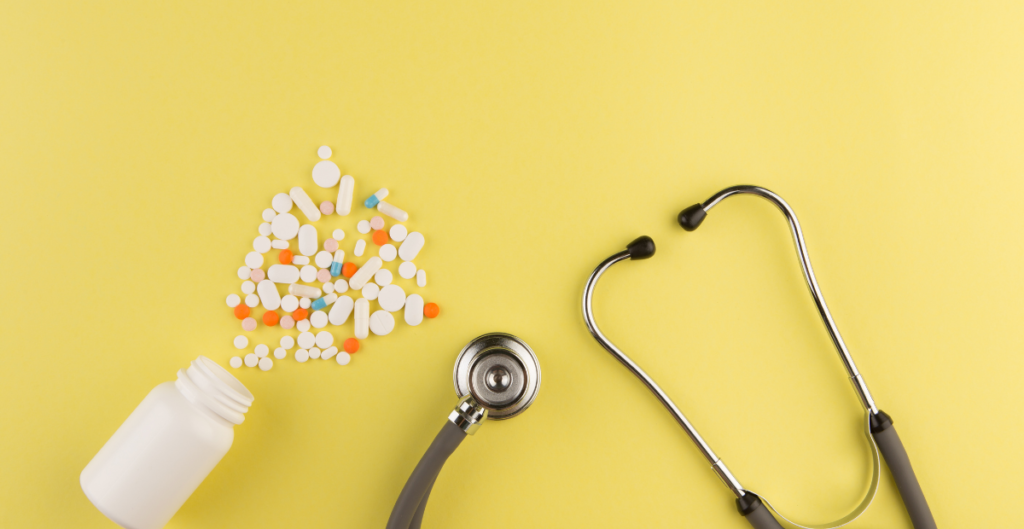What is Prozac?
Prozac is an antidepressant. It’s the brand-name version of the generic drug fluoxetine. You take Prozac long-term to control your symptoms. It belongs to a class of drugs called selective serotonin reuptake inhibitors (SSRIs). These drugs work with neurotransmitters in the brain to help people with depression and anxiety. Many people tolerate SSRIs like Prozac well without having many side effects.
However, that doesn’t mean the drug comes without risks. For example, mixing Prozac and alcohol (a brain-altering substance) can be harmful. It’s recommended that you avoid drinking alcohol while you’re on this medication.
Prozac Features
Even though Prozac is nearly 30 years old, it’s still one of the most prescribed antidepressants in the United States. It works by inhibiting the uptake of the neurotransmitter serotonin in your brain. This can help control your mood and behavior. Prozac is prescribed for the following health conditions:

- Bulimia nervosa
- Major depressive disorder (MDD)
- Obsessive-compulsive disorder (OCD)
- Panic disorder
- Treatment-resistant depression
Prozac and alcohol: This drug is also sometimes combined with other medications to treat bipolar disorder.
Can I Mix Prozac and Alcohol?
Prozac and alcohol: Some adults like to have a drink for a special occasion. Others might drink more often to alleviate stress. Regardless of why or how much you drink, alcohol has the same basic effects on your body. It’s a depressant that impacts your brain function. Drinking slows down and even blocks messages within your brain. It can cause the following problems:
- Trouble thinking and impaired judgment
- Fatigue
- Anxiety
- Depression
- Trouble hearing and seeing
- Decreased motor skills
Interactions Between Prozac and Alcohol
Prozac and alcohol: The ingredients in Prozac are designed to help calm your mood. One of the side effects of the drug is tiredness. Prozac can interfere with coordinated movement and alertness like alcohol does. Combining Prozac and alcohol can quickly lead to increased sedation. Having even one drink while you take Prozac can cause extreme drowsiness. This effect can lead to potentially dangerous situations. These include poor decision-making, impaired driving, and an increased risk of falls and injuries.
Mixing alcohol and Prozac can also lead to other side effects. These can include:
- Dizziness
- Sudden fatigue and weakness
- Feelings of hopelessness
- Suicidal thoughts
Mixing Prozac and alcohol may cause fatigue and weakness, which may interfere with your ability to finish simple tasks. You may find yourself needing to take a break to rest.
Alcohol can also keep Prozac from working as well as it should. Taking antidepressants like Prozac doesn’t mean you’re immune to the depressive effects of alcohol. Instead, alcohol may keep your medication from working to its full effect. This means you won’t get the full benefits of Prozac. This can make the symptoms of your condition even worse.
What to do about Prozac and Alcohol
If you take Prozac, do not drink alcohol. Mixing the two can put your health at risk. If you have strong urges to drink, talk about these feelings with your doctor.
If you’re trying to control your drinking, there’s some good news. According to a review in American Family Physician, there’s a small amount of evidence that suggests that fluoxetine, the generic name of Prozac, may help alcohol-dependent people abstain from drinking alcohol. This doesn’t mean that Prozac should be used to treat alcoholism. But it does suggest that the drug may reduce your desire to drink.
It’s important to note that the effects of combining Prozac and alcohol can happen even if you don’t drink at the same time you take the drug. Prozac is a long-term medication, so it stays in your body for a long time after you take it. Waiting a few hours after you take the drug to drink won’t reduce your chance of negative effects.
If your doctor stops your treatment with Prozac, ask them how long you should wait before drinking any alcohol. How long the drug stays in your system depends on your dosage and how long you’ve been taking the medication. Some forms of the drug can affect your body for more than two weeks after you take your last dose.

Effects of alcohol on depression
Alcohol is a depressant, so drinking it when you have depression can make the symptoms of your condition worse. It can even cause signs of depression in people who don’t have clinical depression. Symptoms of depression can include:
- Frequent sadness
- Feelings of worthlessness
- Loss of interest in activities you used to enjoy
- Unusual tiredness
- Suicidal thoughts
If you’re tempted to drink when you feel depressed, don’t. Drinking will only make your health worse. Instead, call your doctor. There are many safe, effective ways to treat depression.
Causes of Alcoholism
It is common to think this condition arises from a person who simply does not know how to control their alcohol consumption and is trapped in a vicious circle, but according to the scientific piece ‘The many causes of Alcoholism’ Cohen, S. Published on the Drug Abuse & Alcoholism Newsletter, there are three main causes of alcoholism disease: biological, physiological, and sociocultural.
- Biological causes may be:
- Genetic: “inherited susceptibility to alcohol’s acute effects, impaired ability to catabolize ingested alcohol, or difficulty in dealing with anxiety, frustration, and depression”.
- Biochemical: insulin sensitivity, episodes of spontaneous hypoglycemia, or adrenal insufficiency.
- Or endocrine: persistently low levels of androgenic hormones.
- Among the psychological causes of Alcoholism are:
- Need for tension relief and anxiety control
- Personality disorders
- Psychodynamic factors
- Learning: tension reduction from drinking provides a positive reinforcement to continue drinking
- Role modeling: peer example or occupational pressures
- Culture-specific drinking traditions and those stresses and conflicts experienced by certain subcultures also contribute to overindulgence in alcohol
Alcohol’s Effects on the Body
The effects of a drink of alcohol can vary a lot from one person to the next, but it usually takes about an hour for your body to metabolize one drink. Alcohol stays in the body for different periods depending on how much you drank, your body weight, and your sex. Factors that influence how quickly alcohol leaves the system include your age, height and weight, and amount of food in your stomach at the time you drink.
But Alcoholism can affect multiple organs of the body, including the brain, heart, liver, pancreas, and even the immune system.
- Brain: Alcohol interferes with the brain’s communication pathways, and can affect the way the brain looks and works. These disruptions can change mood and behavior, and make it harder to think clearly and move with coordination.
- Heart: Drinking a lot over a long time or too much on a single occasion can damage the heart, causing problems including:
- Cardiomyopathy – Stretching and drooping of the heart muscle
- Arrhythmias – Irregular heartbeat
- Stroke
- High blood pressure
- Liver: Heavy drinking takes a toll on the liver, and can lead to a variety of problems and liver inflammations including:
- Steatosis, or fatty liver
- Alcoholic hepatitis
- Fibrosis
- Cirrhosis
- Pancreas: Alcohol causes the pancreas to produce toxic substances that can eventually lead to pancreatitis, a dangerous inflammation and swelling of the blood vessels in the pancreas that prevents proper digestion.
- Immune System: Drinking too much can weaken your immune system, making your body a much easier target for disease. People who drink chronically are more liable to contract diseases like pneumonia and tuberculosis than people who do not drink too much. Drinking a lot on a single occasion slows your body’s ability to ward off infections – even up to 24 hours after getting drunk.
Symptoms of Alcoholism
As stated by the National Institute on Alcohol Abuse and Alcoholism, these are the signs to be aware of in terms of this condition:
- Appearing intoxicated more regularly
- Appearing tired, unwell, or irritable
- An inability to say no to alcohol
- Becoming secretive or dishonest
- Drinking more, or longer than one intended
- Want to cut down or stop drinking, or tried to, but haven’t been able to do so
- Spending a lot of time drinking, being sick, or getting over the aftereffects
- Experiencing craving, a strong need, or an urge to drink
- Founding that drinking, or being sick from drinking, often interferes with taking care of your home or family, job troubles, or school problems
- Continuing drinking even though it was causing trouble with family or friends
- Giving up or cutting back on activities that are important or interesting to you, to drink
- More than once gotten into situations while or after drinking that increased your chances of getting hurt (such as driving, swimming, using machinery, walking in a dangerous area, or having unsafe sex)
- Continuing to drink even though it was making you feel depressed, anxious, or adding to another health problem, or after having had a memory blackout
- Having to drink much more than you once did to get the effect you want. Or finding that your usual number of drinks has much less effect than before
- Finding that when the effects of alcohol are wearing off, you have withdrawal symptoms, such as trouble sleeping, shakiness, irritability, anxiety, depression, restlessness, nausea, or sweating.
Alcoholism Treatment
When it comes to Alcoholism treatment, it is normal to think of 12-step programs or 28-day inpatient rehab, but it becomes difficult to think of more options of treatment for this condition. There are a variety of treatment methods currently available. According to the National Institute on Alcohol Abuse and Alcoholism, there are three types of treatment:
- Behavioral Treatments for alcoholism: are aimed at changing drinking behavior through counseling. They are led by health professionals and supported by studies showing they can be beneficial.
- Medications for alcoholism: Three medications are currently approved in the United States to help people stop or reduce their drinking and prevent relapse. They are prescribed by a primary care physician or other health professional and may be used alone or in combination with counseling.
- Peer-Support Groups for alcoholism: Alcoholics Anonymous (AA) and other 12-step programs provide peer support for people quitting or cutting back on their drinking. Combined with treatment led by health professionals, mutual-support groups can offer a valuable added layer of support. Due to the anonymous nature of mutual-support groups, it is difficult for researchers to determine their success rates compared with those led by health professionals.

Reclaim Your Life From Alcoholism With Dual Diagnosis Rehab Washington
Prozac is a commonly prescribed antidepressant that should be used with caution if mixed with alcohol. Not only can alcohol worsen your mood or anxiety, but combining Prozac and alcohol might also lead to potentially dangerous side effects. If you suffer from alcoholism you might have difficulties stopping drinking while taking Prozac.
Alcoholism is a serious disease that should not be taken lightly. We Level Up Dual Diagnosis Rehab Washington can provide you, or someone you love, the tools to recover from alcoholism with professional and safe treatment. Feel free to call us to speak with one of our counselors. We can inform you about this condition by giving you relevant information. Our specialists know what you are going through. Please know that each call is private and confidential.
We Level Up Washington Mental Health Center: Primary Mental Health Treatment with Secondary Co-Occurring Treatments
The We Level Up Washington primary mental health center stands ready to help. Offering secondary treatment programs for underlying conditions like Alcohol addiction that frequently fuels harmful behaviors. Taking that first step to get the professional support you need can be life-transforming.
We know how mental health disorders and secondary co-occurring substance abuse diagnoses directly affect one another. The We Level Up Washington treatment center provides recovery programs through science-based mental health treatments that can help you feel better. Call us now for a free mental health evaluation!
Inpatient medical detox and residential primary addiction treatment may be available at affiliated facilities at other We Level Up Treatment Centers locations beyond the Washington treatment facility.
Sources
[1] Eli Lilly and Company. (2009). Medication guide: Prozac. Indianapolis, IN
fda.gov/downloads/drugs/drugsafety/ucm088999.pdf
[2] Prozac – fluoxetine hydrochloride capsule. (2016, June 8)
dailymed.nlm.nih.gov/dailymed/drugInfo.cfm?setid=c88f33ed-6dfb-4c5e-bc01-d8e36dd97299
[3] National Institute on Alcohol Abuse and Alcoholism. (2014). Harmful interactions: Mixing alcohol with medicines
pubs.niaaa.nih.gov/publications/Medicine/Harmful_Interactions.pdf